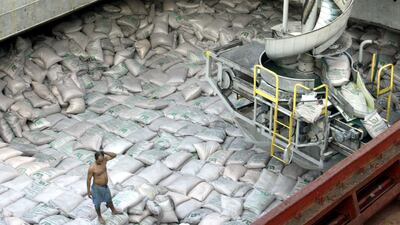For global sugar markets, it’s beginning to look like one of the worst shortages in history.
Consecutive years of deficits, weather damage to key crops and shipping bottlenecks are reminding the world’s top sugar trading company of 2010 and 2011, when prices of the sweetener hit a three-decade high.
“Current conditions are eerily similar,” said Mauro Angelo, chief executive at Alvean, a trading house controlled by Brazilian producer Copersucar.
The company expects a sixth straight year of deficits in the coming season as a poor outlook for India’s crops is set to drive down global stockpiles of sugar.
To make matters worse, top producer Brazil is seeing a repeat of the last decade’s logjams that are keeping the world undersupplied.
“Rains in India have been horrible and water reservoirs are extremely low, so the next crop could be even worse than the current one,” Mr Angelo said.
India isn’t expected to ship any sugar for the season that has just started, a shift from two seasons ago when exports were as much as 11 million tonnes.
That means markets are depending on Brazil, Mr Angelo said, making prices extremely sensitive to issues like untimely rains that threaten to disrupt harvests or delay ship loadings.
Sugar is already piling up in Brazilian ports as the country’s infrastructure is stretched to the maximum capacity.
Bumper soy and corn crops are forcing sugar to compete for space at ports and railway stations, while recent heavy rains increased the amount of time ships have to wait to load.
Alvean’s chief executive said he believes the logistics issues have probably prevented Brazil from shipping at least one million tonnes of sugar in October, a loss the country will hardly be able to make up in the coming months.
That’s because the crowded ports will not have the capacity to handle any extra volumes, and soon a new soybeans crop will be filling up storage space once again.
With little stocks held in countries that rely on imports to fulfil demand, Mr Angelo sees the risk of supply chain disruptions.
“Consumers are delaying purchases and have been buying hand-to-month in the last months; the now growing involvement of governments in procurement and import tax reductions is an important sign of tight stocks,” he said.
“The entire system is under stress.”

